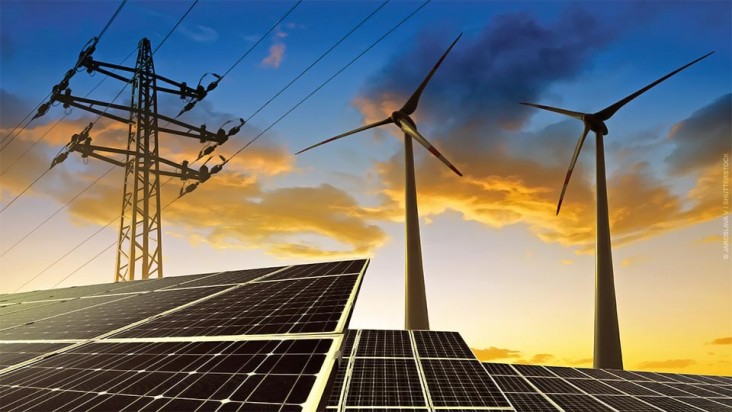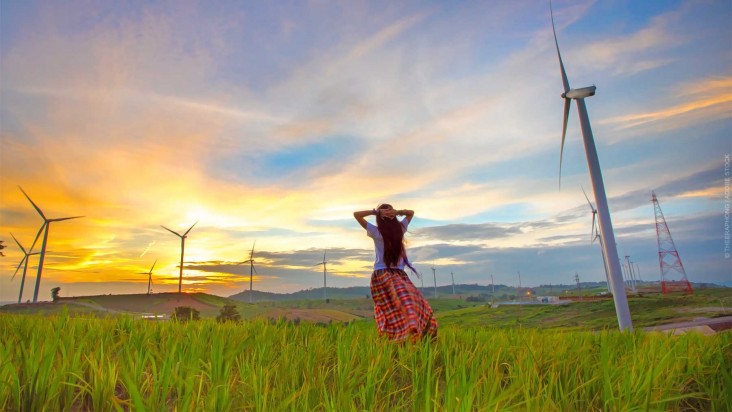Wind Energy Project Development and Renewable Energy Procurement: Best Practices, Considerations, and Tools
Focused on Bangladesh, this webinar series provides fundamental knowledge and resources to make informed decisions about renewable energy procurement and wind project development.
USAID supports partner countries on their journey to self-reliance by helping design and implement auctions that can rapidly scale clean energy at low prices and advance national economic and clean energy goals. USAID provides support for auctions through bilateral and regional energy programs and a variety of programs managed out of Washington, D.C.
Renewable energy procurement can be very context-specific, and each country has unique considerations. However, there are some common best practices for countries with nascent renewable industries. The adoption of these best practices has led to renewable energy projects with social, economic, and environmental benefits, as well as substantial foreign direct investment.
From August 11–19, 2020, USAID hosted the webinar series, “Wind Energy Project Development and Renewable Energy Procurement: Best Practices, Considerations, and Tools.” The training provided the agencies of the Government of Bangladesh, as well as private sector stakeholders, with the fundamental knowledge and resources needed to make informed decisions about the renewable energy procurement process and wind project development.
As a result of this training, participants can:
- Identify the unique, context-specific challenges and opportunities associated with renewable energy procurement, specifically wind energy;
- Understand procurement best practices and how they might be applied;
- Understand how policy and regulatory environments can support renewable energy deployment in Bangladesh; and
- Gain experience in bidding through an interactive auction bid simulation session.
The training focused on two topics—wind energy and renewable energy procurement—with each topic consisting of two modules. This training was coordinated through the USAID Scaling Up Renewable Energy program and the USAID Laboratory Technical Support for Clean Energy Scale Up and Investment in Bangladesh.
Wind Energy
These modules explore the specific knowledge and tools necessary for the development of wind energy in Bangladesh.
-
Wind Technology Primer
- Learn how manufacturing and research goals improve production, increase reliability, and reduce operations and maintenance costs;
- Use data to fit lower wind speed profiles to the right turbine model; and
- Develop an understanding of turbines, blades, controls, and pricing trends.
-
Wind Development Process
- Learn to identify customers, understand drivers, and research transmission availability;
- Understand more about wind resources, such as which public data or purchased data to acquire, which data to collect on-site, and economic development projections; and
- Become familiar with ownership profiles, environmental and wildlife assessments, permitting requirements, legal tools and contracts for land acquisition, and community engagement.
Renewable Energy Procurement
These modules equip participants with knowledge and international best practices to confidently and effectively evaluate pathways for procurement of renewable energy, especially wind energy, in Bangladesh.
-
Procurement Design
- Understand competitive procurement, negotiated procurement, and administrative feed-in tariffs;
- Observe an interactive bidding simulation and understand how the “winner’s curse” matters in procurement design; and
- Learn about pre-qualification requirements or minimum criteria, ceiling prices, and financial guarantees and penalties.
-
Project & Procurement Bankability
- Understand bankability and why it is important;
- Learn about risk division between bidders and government;
- Recognize and learn to implement the elements of power purchase agreements;
- Hear about renewable energy procurement work in Bangladesh; and
- Learn about access to financial instruments.
Happy woman relaxing with wind generators turbines beautiful sunset background in Khao Kho mountain, Petchabun, Thailand.
© theeraphong / Adobe Stock
Renewable energy auctions have emerged as the best practice for procuring least-cost energy. This competitive, transparent process helps countries meet their energy goals and attract private investment on their journey to self-reliance.
In today’s rapidly evolving renewable energy marketplace, it can be challenging to keep track of current best practices in renewable energy policy, innovations, and market trends. USAID developed the Renewable Energy Auction Toolkit to help international development professionals, energy ministries, utilities, policymakers, and regulators to design and successfully implement energy auctions that expand access to affordable and sustainable clean energy.
The proliferation of renewable energy resources requires comprehensive changes to power infrastructure, market design and business models. USAID, through its Scaling Up Renewable Energy (SURE) project, helps partner countries plan, procure, and integrate renewable energy. USAID’s efforts enhance global energy security; promote private sector investment through transparent, competitive procurement; and open paths to self-reliance by empowering partner countries to control their own economic and social development.



Comment
Make a general inquiry or suggest an improvement.